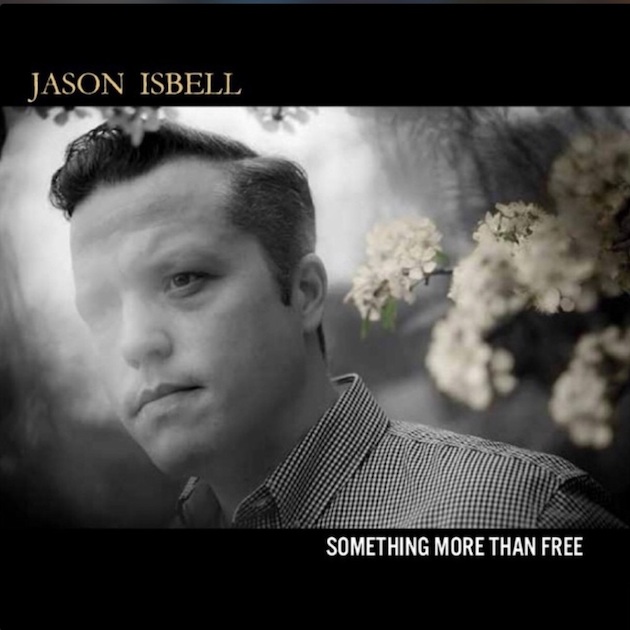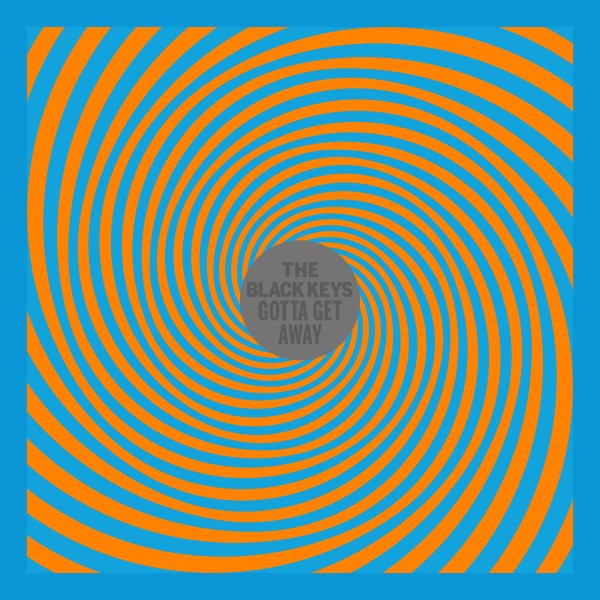LRM Interview at CRS 2014 – Frankie Ballard: "Maybe this whole journey is not about where you're gonna end up."
10 years ago Liv Carter Comments Off on LRM Interview at CRS 2014 – Frankie Ballard: "Maybe this whole journey is not about where you're gonna end up."

Frankie Ballard‘s new album, Sunshine & Whiskey, is surely one of the best country albums this year. It is an incredibly accomplished set, combining hit-quality with some real substance. Current single, ‘Helluva Life,’ penned by Rodney Clawson, Josh Kear, and Chris Tompkins, is a great example of this, and it is such a perfect fit for Ballard that his performance sounds almost like catharsis. At CRS, we chatted about the song and the album, and besides with the music, I now also became impressed with Ballard’s honesty and intelligent insight.
LRM: The new single ‘Helluva Life’ is fantastic! Brittany reviewed it for LRM and she raved about it.
Frankie Ballard: Aw, thank you!
LRM: She told me she had been hearing on the radio for a while, and she wanted to know who song it was, but for a couple weeks they didn’t announce it.
FB: Yeah, I’m always real grateful when stations put the little tag at the end of the songs, kinda like [in deep voice] “That was Frankie Ballard…”, so people know who it is.
LRM: That was a really good radio voice, by the way, you should do your own and send it along with the single! Or just put it on the audio! [smiles] FB: At the end of the song! That’s a good idea! [laughs]
LRM: The trio of songwriters on this song is obviously stellar. How did this song come to you, and what was it about it that made you go “I want this!”
FB: The song moved me and it’s so parallel with the journey I’ve been on in my career, and in my life. It talks about the bad times making the good times better, and saying “oh, it’s a hell of a life” and raising up a glass at the end of the day, it’s almost a coping mechanism for people at times. If you have a bad day, if life is throwing you a curveball, it’s a thing to say to make you feel better, and to make you appreciate what you do have in live. I have experienced those things, and I knew that a lot of other people would be able to relate to that. It’s just life, it’s the way it is. I also thought when I was listening to it, “you know Frankie, maybe this whole journey is not about where you’re gonna end up, what you have in your headlights, the goals you’re trudging towards. Maybe it’s not about that. Maybe it’s about all these little experiences day to day. That’s what life really is.” It really moved me, and it has been cool to see people attaching their own stores to the lyrics. I see it on social media where people talk about what it means to them and I love to hear that. I hoped that this song would evoke that, so it’s been really cool to see that.
LRM: It’s also doing really well on the charts right now. Do you try to stay away from that, or are you that artists who gets on Mediabase every day?
FB: I made a conscious decision, because this isn’t my first single, and I have chart-watched in the past. [smiles] I made a decision to not do that, for my own joy, for my own peace in life. And if I’m honest, it’s actually a layer deeper than that. I’ve been making music for a living for a long time, and in my bad times, in my struggles, I saw artists going past me. You can see them go past me on the chart. Here’s a perfect example. I was signed at Warner and I had a single on the charts before Hunter Hayes was even out of high school. And then to see him get signed to the same label and fly right past me, those things are stressful. So it was a culmination of that, and I just said to myself “look, this is your journey, this is your thing, and don’t worry about that stuff.” Because sitting and looking at it is not going to change it. Staring at the charts is not going to get you any more spins, or going to stop Blake Shelton from jumping over you. These are things I can’t control. I’m really happy that Hunter is a huge star, and that is his path and his story, but this is mine. I’ve been a lot more peaceful this time around. I even deleted the Mediabase app! [laughs]
LRM: I read a recent interview with you where you made an interesting comment about the importance of having the right team around you. In what way was this the right team, what was it that you needed out of the producer, engineer, studio players, to help you do you best work?
FB: I needed them to let me play on the record and be a part of the arrangements. Sometimes you can get a little strong-armed by a producer who had a lot of success, and who doesn’t want you, a young artist who hasn’t had any success, messing up there mojo. [smiles] It’s almost like they are making their record, they’re not making your record. The people I had around me now were totally willing to work with me, invest in me, and let me just be me. And that was also in an effort to carve out an original sonic space, a sound that was recognizable. The only way I know how to do that is to be myself. An example of that is Keith Richards, who played a lot of guitar and bass on the early Rolling Stones stuff. If you put some headphones on and listen to ‘Honky Tonk Woman,’ it’s magic. It has so much emotion and feeling, it seems like you can almost take a bite out of it. It’s so rich with greatness and originality. There are a million session guitar players that can play circles around Keith Richards, but they never would have been able to make it sound and feel the way it did with him. So that’s all I wanted to try to do, is to do that for myself.
LRM: The reason I said before the interview that we needed to talk about Marshall Altman is that he produced another one of my favorite records, and co-wrote one of my favorite songs of all time.
FB: The Marc Broussard album?
LRM: No, Some Mad Hope, Matt Nathanson. [smiles] FB: Oh!
LRM: It’s one of my favorite albums and the last song, ‘All We Are,’ is one of my favorite songs of all time. On your album, I kind of hear Marshall’s fingerprints too. It’s not similar because you’re very different musicians, but every song has been given an identity and every song belongs with all the others. It’s not just a collection of songs, if that makes sense.
FB: Yes, definitely.
LRM: And I know it’s early in the year, but this record, Sunshine & Whiskey, there is no way that there will be ten records better than this, so this will make my list at the end of the year. It’s an astonishing piece of work!
FB: Thank you so much, that means a lot.
LRM: I have also been really impressed with your live performances. How much road testing were you able to do for this record?
FB: A lot! This album was more than two years in the making. That was the cool thing about working with Marshall. He has his little studio in Berry Hill and we would just have open files, adding tracks, building it from scratch. I would come in and put a guitar part down and take it out on the road and play it for awhile. And then I’d be able to come back and say “Marshall, you know what, I was trying this but it seems like this works a little bit better,” and he’d say “OK, lets try that.” The final record was tested a lot. I wanted to be honest with myself and the music, and seeing what works out there. That’s who I am. I’ve been playing live forever and connecting with people, and deciding on the songs I put my on set list in order to make the shows exciting and to reach people or to tell a story or whatever, that’s what needed to be down on tape. And I think we finally married those two and I’ve never been able to do that before.
LRM: Well, as a strong live performer you need strong songs on stage. And I think one of the most impressive parts of the album for me is how much you say. Even in a song like ‘Drinky Drink,’ there are still real characters with real stories. You picked a few party songs for this record but they all still go deeper than that.
FB: Any theme that’s on the record, from drinking to love, I tried to either pick or write songs that had original takes on those themes. Like ‘Don’t You Wanna Fall’ is a love song but I’d never heard it said that way, where he feels he’s down here and she’s up there, and then it’s “don’t you want a fall down here?” It’s interesting to me. Or ‘Tip Jar’ is the age old song of summer love and having to say goodbye at the end of the summer. I never thought about it in terms of it being a tip jar and being a performer on stage. So they’re all original takes, maybe not original themes, but original takes.
LRM: I think the closer, ‘Don’t Tell Mama I Was Drinking,’ is an amazing example of that. It sounds very modern but it’s a true country song. And maybe it’s not a new idea but it’s a new approach.
FB: Yes, a new way to talk about it. Thank you for listening so intently to the music!
LRM: Thanks, but I kind of feel bad because I haven’t been able to spend as much time with the record as I would have liked.
FB: Well, it sounds like you did. [smiles]
LRM: I like to dig deep with songs… [smiles] FB: Well, burn it up! [smiles]
LRM: Oh I will, it’s in my car now so I will be able to spend more time with it.
FB: It’s in heavy rotation in the car? [smiles]
LRM: Yes! [laughs] It’s #1 in my car, I don’t know what it is on Billboard right now, but it’s at the top in my car.
FB: That’s great to hear! [laughs]
LRM: I like spending a lot of time with music. You spend a lot of time making it so then, if I’m doing an interview, I feel like I owe it to you to really know the record.
FB: Well, thank you for that. That means a lot and we really appreciate it. Thank you.
LRM: And it certainly helps that it is just a really, really good record! [smiles] FB: Thank you! Well, this was fun, I enjoyed this interview. Let’s do it again! [smiles]
LRM: Any time you want! [smiles] FB: You got it, just let me know! [smiles]
Liv Carter
She holds several certificates from Berklee College of Music, and a certificate in Positive Psychology from UC Berkeley.
Her main influences are coffee, cats, and Alexander Hamilton.
Latest posts by Liv Carter (see all)
- Well yes, racism, but it’s more complicated - February 13, 2017
- Black River Entertainment had a great reason to party! - October 25, 2016
- Keith Urban returns to the States for US arena leg of his “ripCORD WORLD TOUR 2016” - October 10, 2016



